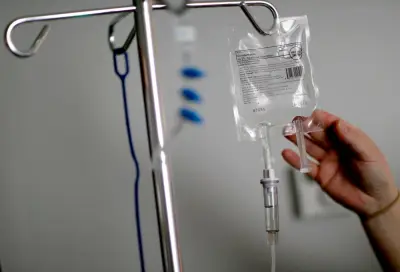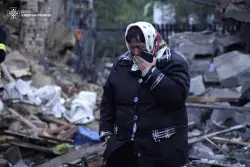Snoey, Morocco: The emergency in emergency medicine

If you have been to an ER lately or if you ve watched the disturbingly accurate TV show The Pitt you ve seen scenes that resemble field hospitals more than state-of-the-art biological centers Waiting rooms have been turned into makeshift care zones Chairs cots and cubicles serve as gurneys Providers eyeball the sick and injured and shotgun orders for patients It feels chaotic and unwelcoming because it is This is the new normal for emergency departments in the United States the product of a dramatic rise in the number of ER beds occupied by patients waiting for a space on a traditional hospital ward We call them boarders and in a large number of urgency departments they routinely account for half or more of all available care space With a fraction of beds in play for new arrivals waiting room patients even particular arriving by ambulance are increasingly likely to be seen examined and treated in the lobby The consequences are as predictable as they are devastating worse case outcomes fragmented care longer hospital stays ballooning costs and rising frustration and anger among staff and patients Less visible but no less harmful is the toll this takes on young doctors in training A newest assessment led by Dr Katja Goldflam a Yale professor documents the scale of the trouble Nearly three-quarters of the crisis medicine residents she surveyed released that boarding had highly negative effects on their training They expressed anxiety and a mounting emotional toll over their diminishing ability to manage patients or handle department surges with confidence and their growing sense that they could not provide the kind of care they d expect for their own families As urgency medicine educators with a combined six decades of experience this feels personal to us We are failing our trainees We are failing our patients And we are compromising the future of doctors and patients alike The damage is not theoretical One of us lately experienced it personally when his father during the final months of his life visited two prestigious ERs Both times not long ago trained physicians missed straightforward but life-threatening problems after brief stopgap-style encounters Poor clinical judgment is more likely and more consequential in a hurried and overwhelmed care circumstances In contemporary times therapeutic schooling is no longer centered on memorizing facts With smartphones decision-support tools and now AI information is everywhere What sets a good medical expert apart is judgment the ability to address uncertainty synthesize complex figures and make decisive accurate choices Building this kind of judgment requires multiple recipient encounters reps No amount of classroom learning reading or podcast listening can replace the formative experience of confronting a clinical puzzle in a recipient who has entrusted you with their care Yet in in the modern day s crowded ERs physicians in training are losing access to these crucial face-to-face encounters and the skills competence and confidence they teach Shift change rounds once a space for discussion and reflection now operate more like inventory checks Here s a -year-old with heart failure there s a -year-old with appendicitis still awaiting an OR Meanwhile as the waiting room overflows doctors scatter into the lobby to see new arrivals hoping to reduce the backlog Lobby medicine a sanitized term for care delivered in a setting stripped of privacy dignity and safety is more than a logistical nightmare It sends a terrible message to young physicians that cursory person assessments firing off broad-spectrum tests and moving the meat is acceptable It is not Why is boarding getting worse COVID- was the inflection point While volumes dipped early in the pandemic they rebounded within a year and in according to national hospital metrics stood at above levels In research proved a increase in boarding and fourfold increase in median boarding times compared with pre-pandemic ERs The reasons are complex and systemic financial pressure to keep hospital beds full every open space is lost revenue an aging population with greater necessities dwindling access to primary care and a collapsing system of rehab skilled nursing or home physical condition options Hospitals are boxed in forced to provide basic care while waiting days sometimes weeks for aftercare services to become available It is not uncommon for a third or more of the patients in a hospital to be on hold pending an appropriate discharge destination The bottleneck trickles down Wards become holding areas the ER becomes a de facto ward and the lobby becomes the ER Related Articles Allison Schrager Republicans like Europe whether they know it or not David Brooks Populists right and left distort facts for the sake of their fiction James Stavridis How can Europe deter Putin Revive the Reforger Other voices Gun rights vs religious freedom the Texas double standard Trudy Rubin Why the ambassador to Ukraine quit and Trump s phone call with Putin bombed So what s the fix The simple answer just end boarding has been the rallying cry of well-intentioned efforts for decades Nearly all have failed Why Because urgency department crowding is not the root challenge It s the canary in the coal mine of a dysfunctional soundness care delivery system riddled with misaligned incentives and priorities Real change will require collective outrage that spills beyond the ERs into the inboxes and onto the agendas of hospital administrators insurance executives and elected officers If we want better physical condition care it means investing more adding beds staffing and aftercare maximum It means creating primary care options other than a default trip to the ER It means reclaiming the ER not just as a place for healing but as a place for learning A place where doctors are taught not in mishap zones but in environments that allow for connection and understanding of our patients and their diseases Certainly it means recognizing that designing and investing in better systems and in diagnostic training is crucial to populace safety Training a great practitioner is like training a great athlete You can t learn to sink a three-pointer by watching YouTube You have to step onto the court In medicine that means standing in front of a client and deciding What now That experience raw real and imperfect is irreplaceable And we re losing it How we care for patients this day will define how we all will be cared for the upcoming day Eric Snoey is an attending urgency medicine physician in Oakland Calif Mark Morocco is a Los Angeles physician and professor of crisis medicine They wrote this column for the Los Angeles Times

